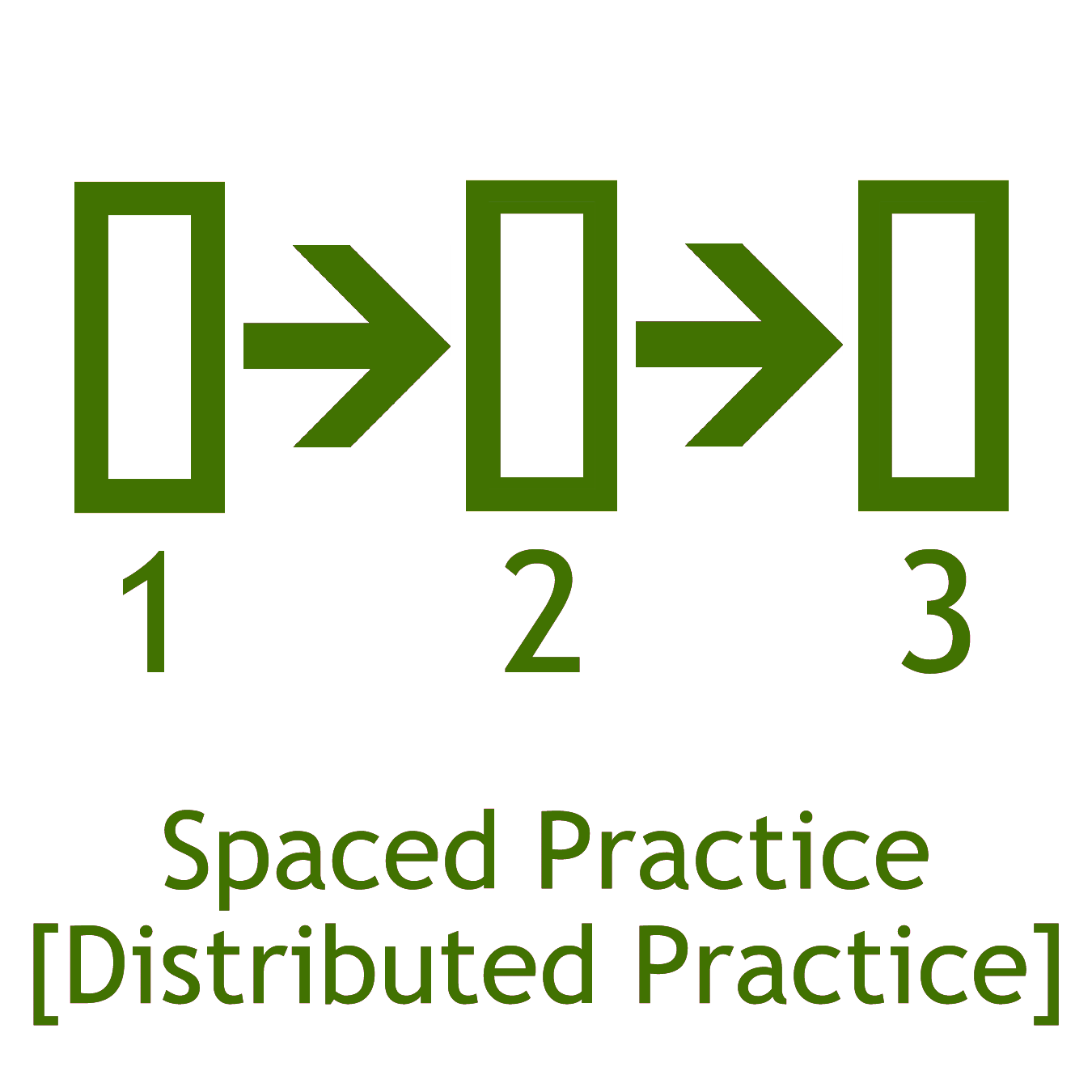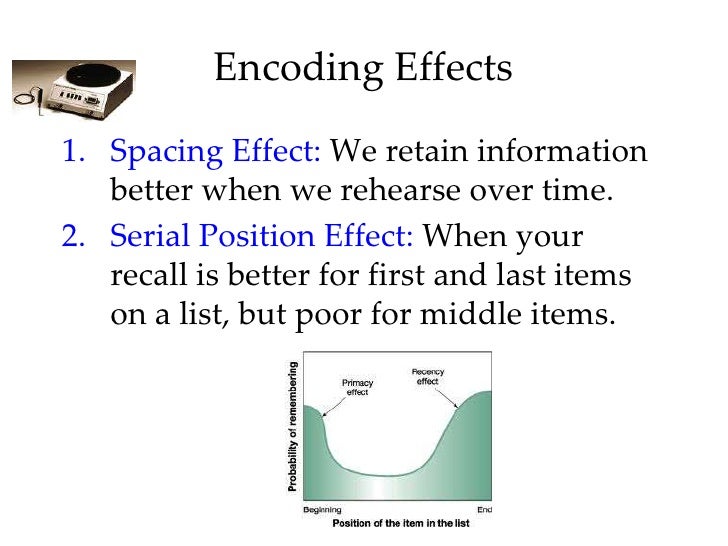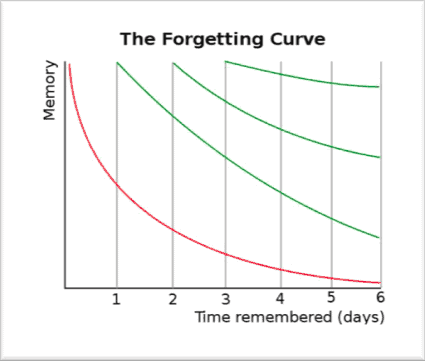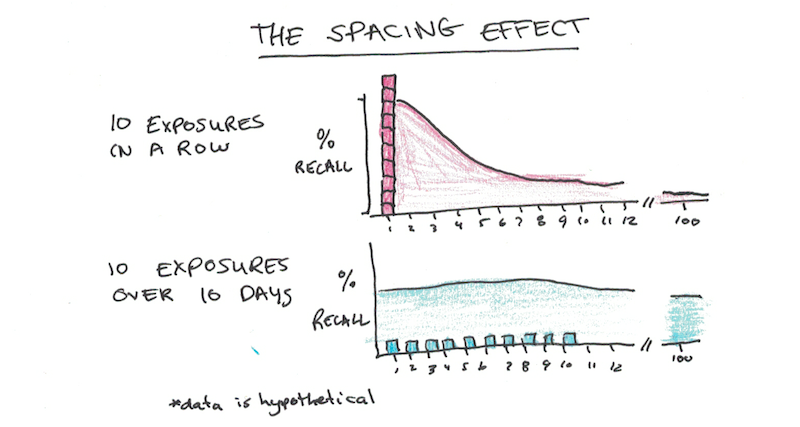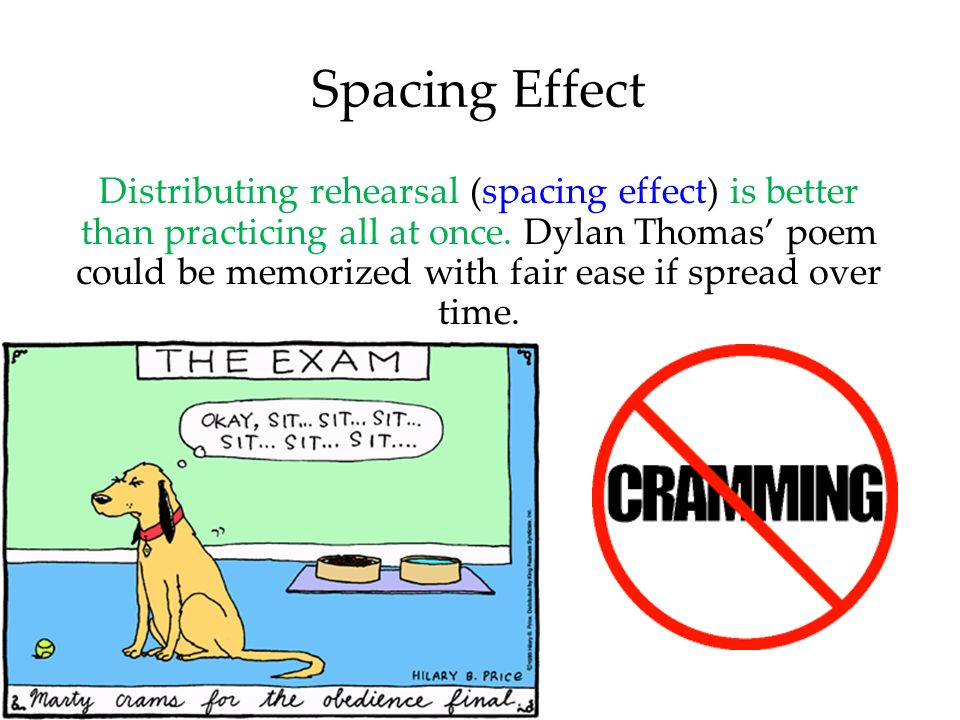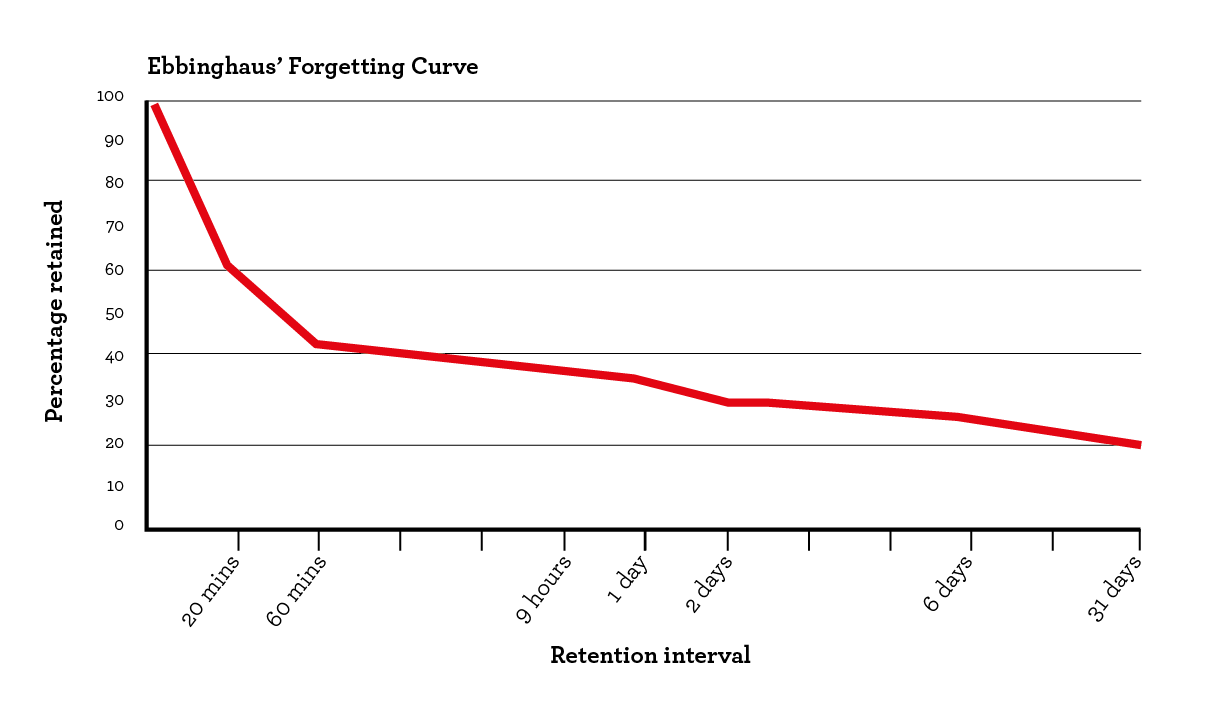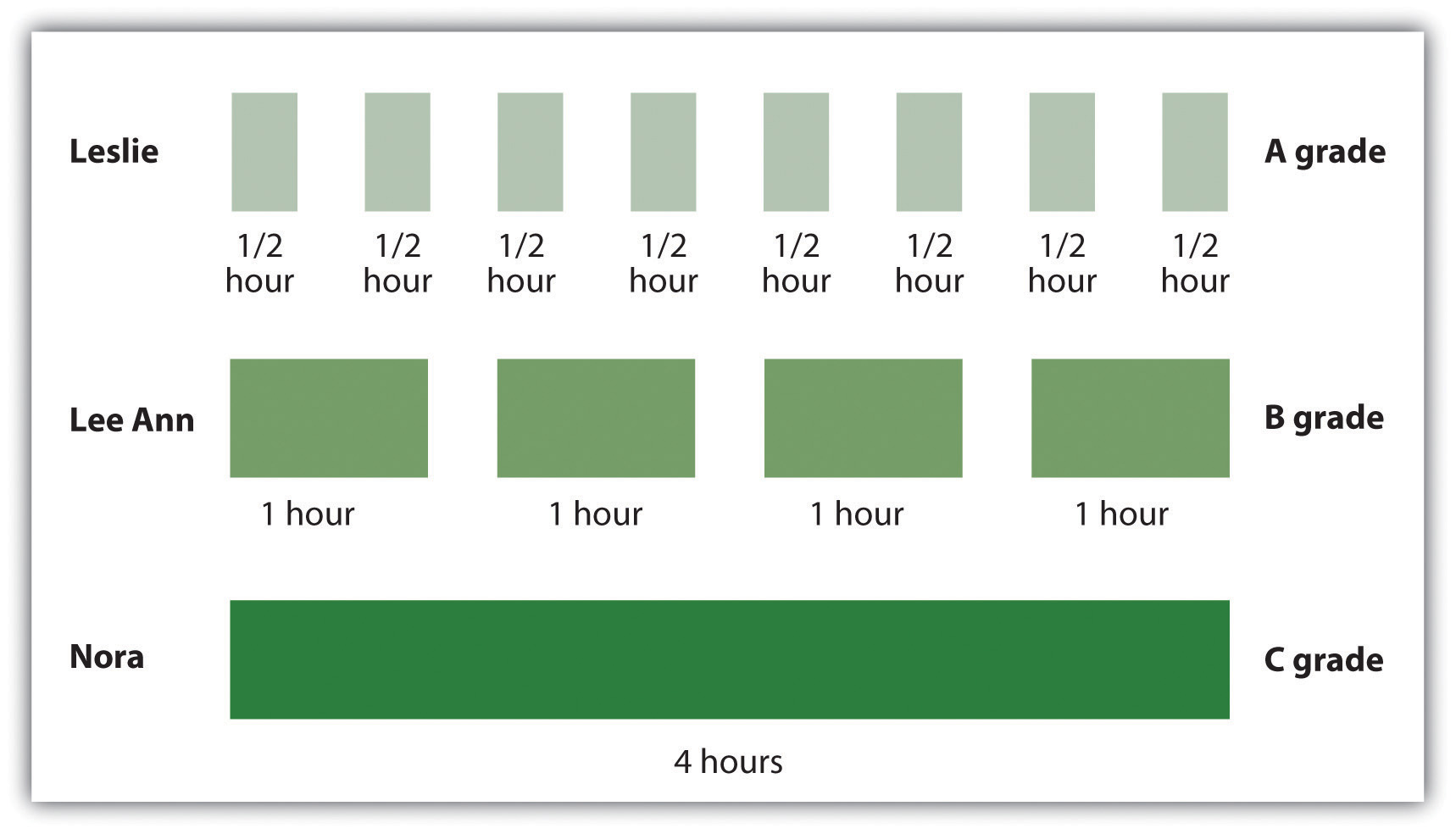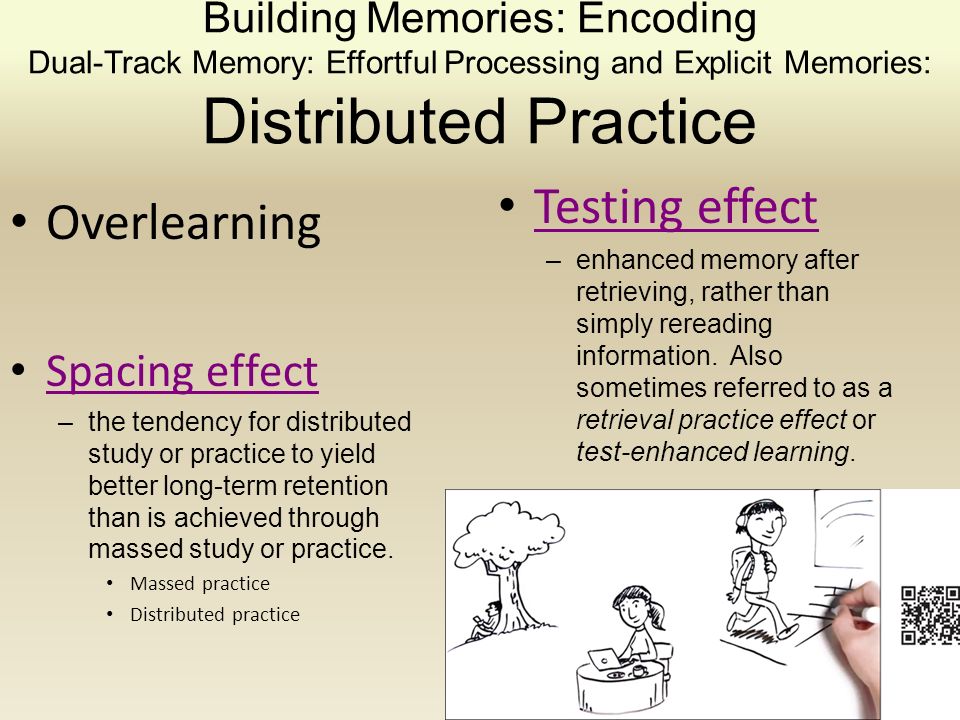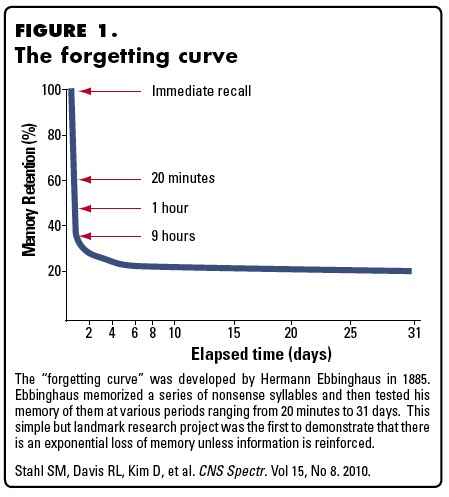Spacing Effect Psychology Definition

The spacing effect is the tendency for long term memory to be increased when learning events are spaced in time.
Spacing effect psychology definition. The spacing effect demonstrates that learning is more effective when study sessions are spaced out. The following are illustrative examples of the spacing effect. The benefit of distributing learning over time is commonly known as the spacing effect. The phenomenon was first identified by hermann ebbinghaus and his detailed study of it was published in the 1885 book über das gedächtnis.
3 generally speaking multiple practice sessions over time results in better long term memory than a single practice session of equivalent duration or an equivalent number of repetitions. According to the spacing effect learning benefits are greater when an individual spreads her studies over a period of time instead of cramming all of it into a single session. Spacing effect states that we learn material more effectively and easily when we study it several times spaced out over a longer time span rather than trying to learn it in a short period of time. The spacing effect refers in psychology to the observed phenomenon that items that are repeated during list learning are remembered better if their two presentations are spread out over time spaced presentation than immediately one after the other massed presentation.
This effect shows that more information is encoded into long term memory by spaced study sessions also known as spaced repetition or spaced presentation than by massed presentation. As you can guess this means that cramming for an exam the night before is not as effective as studying material each night over a week or some period of time. The spacing effect in the field of psychology the spacing effect refers to the finding that information which is presented over spaced intervals is learned and retained more easily and more effectively. Untersuchungen zur experimentellen psychologie which suggests that.
Hintzman block 1973. In particular it refers to remembering items in a list. It is believed that.
